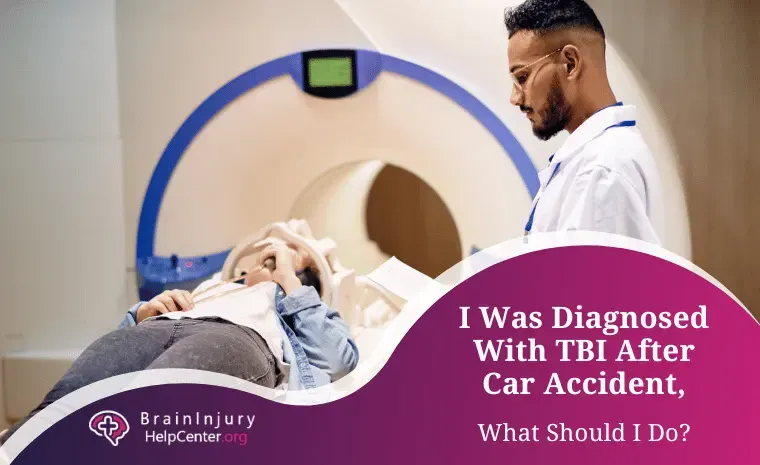Traumatic brain injury, or TBI, is the result of a violent jolt or bump to the head. The U.S. Centers for Disease Control and Prevention (CDC) states that traumatic brain injury is a leading cause of death and disability among American children and young adults. The CDC also reports that motor vehicle crashes are one of the leading causes of nonfatal TBIs.
About 2.8 million Americans sustain a TBI annually. Of this number, around 50,000 of these are TBI-related deaths. Approximately 5.3 million people live with a disability resulting from various types of brain injuries.
In this article, we’ll discuss the following:
- TBIs and motor vehicle accidents
- Symptoms and effects
- TBI after an accident
- What to do after sustaining a TBI in an accident?
TBIs and Motor Vehicle Accidents
The National Security Council (NSC) states that over 42,000 people died due to motor vehicle accidents in 2020, an increase of 8.3% from three years prior.
Direct impact on the head is not a prerequisite for a head injury. The violent motion or rapid shaking of the brain inside the skull may cause a closed brain injury. Due to the force that occurs during an auto accident, the risk of sustaining a closed head injury is heightened.
A closed head injury is a non-penetrating injury without a skull fracture. This can sometimes cause diagnosis to be difficult, especially if symptoms are mild or no signs of physical harm are present. This type of head injury is also commonly seen in athletes’ sports injuries.
Some TBIs caused by motor vehicle accidents result from whiplash, which is the rapid back-and-forth movement of the neck. Although most commonly associated with a neck injury or spinal cord injury, the whiplash injury may also result in a TBI, causing cognitive difficulties and emotional difficulties as well.
On the other hand, motor vehicle accidents may also lead to penetrating brain injury. This occurs when a foreign object penetrates the skull and pierces the brain. A penetrating brain injury is a severe injury that will require emergency medical care.

Symptoms and Effects
The persistent symptoms and effects that follow a TBI will vary depending on the severity of the injury. However, the most common symptoms may include:
- Headaches
- Loss of consciousness
- Loss of balance
- Memory loss
- Feeling dizzy
- Nausea or vomiting
- Blurred vision
- Sensitivity to light and noise
- Mood swings
- Seizures
- Slurred speech
- Ringing in ears
How Long After a Car Accident Do TBI Symptoms Manifest?
Some signs and symptoms, especially those related to initial trauma, may present themselves immediately or within 24 hours. Other symptoms may emerge in the days or weeks after the injury. Some of these symptoms may be subtle, and accident victims may not relate these to the primary injury.
If an accident victim is showing symptoms of a brain injury or has experienced a mild injury, they must see a healthcare provider as soon as possible if they are suspected of having sustained a TBI. Prolonged diagnosis can cause worse health outcomes.
In cases of permanent brain damage, these symptoms may become long-lasting effects. Despite the occasional disheartening outcome, recovery is still possible for patients with severe head injuries.
If you or a loved one have sustained a traumatic brain injury and are in need of assistance, we can help you get the medical assistance, resources, and support you need. Do not hesitate to contact us today for more information on how we can help.
Dealing With a TBI After Car Accident
After the injury, a series of brain function tests, imaging tests, and diagnostic tools will be used to determine the extent of the TBI. After these tests, medical professionals will advise treatment strategies, whether hospital treatment is needed, follow-up doctor’s appointments, and monitoring of persistent or worsening symptoms.
The healthcare provider will also advise when a return to work activities or recreational activities will be appropriate.
In the event that the accident victim has sustained a severe head injury, emergency care staff must monitor them for intracranial pressure, as well as work on minimizing secondary damage.
Part of an accident victim’s medical treatment may also include various medications such as anti-seizure drugs to address the risk of seizures and diuretics to address fluid buildup.
Following a TBI diagnosis, cognitive rehabilitation therapy is often the next step toward rehabilitation. A rehabilitation team is essential in this process of recovery.
In many cases, victims of a TBI will develop varying mental health conditions. Some data has shown that about 50% of patients who sustain a TBI experience depression in the first year following the injury. This is highly likely if their injuries were caused by a traumatic event such as an accident.
Some accident victims may develop emotional and mental trauma toward the specific incident. Fearing a repetition of the accident, TBI patients may begin to develop a fear of traveling by car or may refuse to drive again. To overcome this, patients will need to undergo psychotherapy to help them cope.
What to Do After Sustaining a TBI in an Accident?
The outcome of a traumatic brain injury can affect a victim’s mental status, emotional well-being, physical health, and financial welfare. From dealing with medical bills to drastically different daily living, the effects of a TBI are extremely significant.
If you are suffering a TBI after a car accident caused by another person’s actions, there is a way to recover compensation. This compensation can help you cover your medical expenses and other damages incurred due to your injury. A personal injury claim may be filed against the party responsible for your injury.
Help is Available
If you or a loved one are the victims of an accident that caused a traumatic brain injury, you may face challenges that greatly affect your way of life. These types of head injuries can cause physical and emotional problems and may even result in long-term disability.
The California Brain Injury Help Center provides support, information, and assistance for TBI patients and their loved ones needing help. Whether it be the complexities of a traumatic brain injury or insurance claims resulting from an accident, we have the resources and expertise for you.
Do not hesitate to contact us at (866) 576-0936. for more information.









